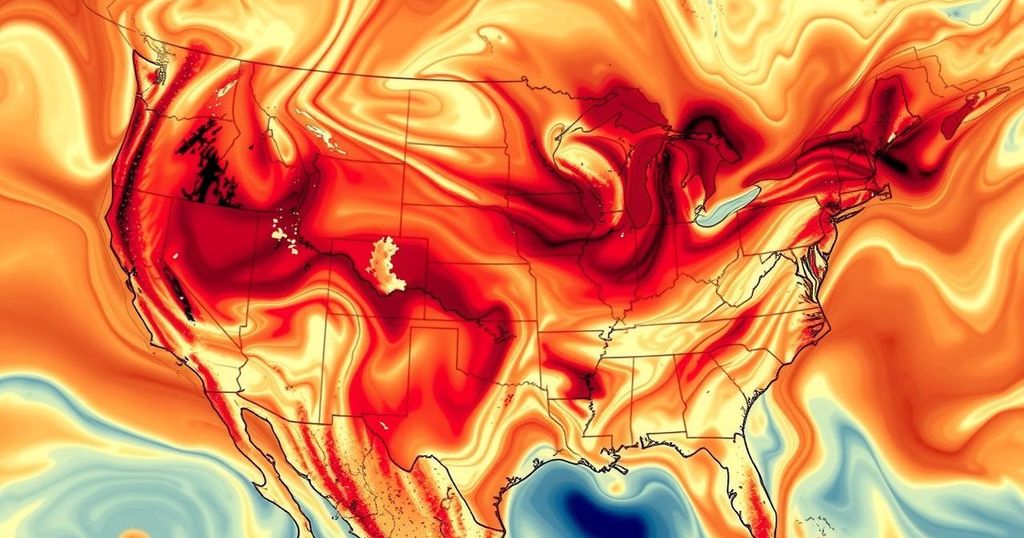The United Nations has reported that the world experienced a “decade of deadly heat,” with 2024 being the hottest year on record. UN Secretary-General António Guterres emphasized the critical need for countries to reduce emissions and adopt renewable energy. The World Meteorological Organization indicated that climate change intensified numerous extreme weather events in 2024, leading to significant loss of life and displacement.
The United Nations has declared that the world has faced a “decade of deadly heat,” with 2024 marking the culmination of the ten hottest years on record. In his annual New Year message, Secretary-General António Guterres highlighted the alarming trend, stating that all of the record high temperatures have occurred within the past ten years. The World Meteorological Organization (WMO) is poised to release official temperature readings for 2024, with preliminary indications suggesting it will be the warmest year recorded to date.
Human activities have been identified as a significant factor contributing to this alarming increase in global temperatures, leading to severe weather extremes. Guterres emphasized the urgency of addressing this climate crisis, proclaiming, “We must exit this road to ruin and we have no time to lose.” He called for countries to take decisive actions in 2025 aimed at significantly reducing emissions and fostering a transition towards renewable energy sources.
Celeste Saulo, Secretary-General of the WMO, underscored that every incremental degree of warming escalates the frequency of climate-related disasters. The past year, marked by extreme weather phenomena, witnessed unprecedented rainfall and flooding along with tragic losses of life across the globe. Countries were subjected to intense cyclones and severe heat, with temperatures reaching alarming highs of 50 degrees Celsius on multiple occasions.
A report from World Weather Attribution (WWA) revealed that climate change exacerbated 26 of the 29 extreme weather events analyzed in 2024, resulting in the deaths of at least 3,700 individuals and displacing millions. The WMO indicated that global warming added 41 additional days of dangerous heat this year, making it increasingly essential for nations and global organizations to collaborate in mitigating severe heat risks.
The evidence is compelling as the planet grapples with climate instability, demanding urgent and collective action to adapt and mitigate the far-reaching impacts of climate change.
The discourse surrounding climate change has intensified in the wake of unprecedented global temperature increases over the past decade. Reports from scientific bodies, such as the WMO, reflect the dire state of the planet as temperatures rise, driven predominantly by human-induced factors such as greenhouse gas emissions. The implications of this warming are profound, manifesting in increased frequency and severity of extreme weather events worldwide.
The findings presented by the United Nations and the World Meteorological Organization highlight the urgency of addressing climate change as we enter 2025. With the past decade witnessing the hottest years on record, the time for decisive action is critical. Concerted international efforts to slash emissions and transition to renewable energy sources are not only essential but achievable to ensure a sustainable future.
Original Source: www.theguardian.com






